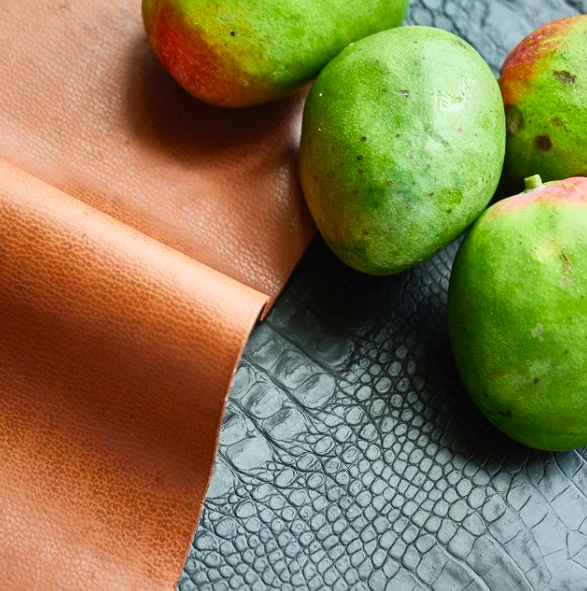Leather products remain a popular purchase for many consumers. However, the impact of leather and tanneries on the environment and the use of animal hide to create these products are heavily criticised. Leather is a by-product of the meat industry and the skins of animals are used to produce leather for mass consumption. Turning animal skins into leather requires large amounts of energy and also emits hazardous chemicals into the environment, such as formaldehyde, coal-tar derivatives, oils, dyes, and finishes, some of which are cyanide-based. Furthermore, the tanning process, which prevents hides from rotting, contains pollutants such as sulfides and acids, which have serious environmental health impacts. Additionally, the processing of leather requires large quantities of water, in order to raise animals whose skin will be turned into leather. There has been mass deforestation to accommodate this and a huge chunk of the Amazon rainforest has been sacrificed to make way for pastureland. The leather industry trade exceeded US$ 80 billion a year, according to a paper by Science Direct in 2019, and is expected to increase as leather is used in everyday products such as cars, furniture and accessories. There is universal agreement that the way leather is currently being produced cannot continue. There are now a growing number of designers and companies that are developing ways to create ‘vegan’ leather products that match up to traditional leather.
Sustainability has long been a critical issue in the fashion industry, which is quick to churn out products depending on rapidly changing trends that are usually discarded within a year.
Desserto was established in 2019 by Adrián López Velarde and Marte Cázarez, who are both from Mexico. Their aim is to provide ‘cruelty-free, sustainable alternatives’ to leather that are free of toxins and chemicals. After two years of research, the duo found an alternative way to produce leather made from nopal, which is a cactus found in abundance in Mexico. The founders came up with this idea after spending time in the furniture, automotive, and fashion industries where they realised how serious the issue of environmental pollution is. Wanting to reduce the damage done to our environment, they found a solution to the problems associated with using animal leather. Nopal leather is made using mature leaves of the cactus plant, which is grown using rainwater and natural minerals as opposed to an irrigation system and can survive in low temperatures. The process of making the leather and its resilience makes it easier and safer for both people and the environment. When leaves are cut to make leather, the rest of the plant is not damaged and there is a new harvest every 6-8 months, out of plants that last for 8 years, making it ideal to cultivate cactus. The leaves of the plant dry in the sun, so no other source of energy is required and then the raw material is processed to create the leather. Furthermore, there is no need to cut down trees to produce leather. Instead the cactus that is planted allows biodiversity and flora to thrive in the region. Adding to its environmental benefits, cactus plants absorb CO2 and the 14 acres of land on which Desserto is grown contributes 8,100 tons of CO2/year. Nopal leather has been trademarked with the name ‘Desserto.’ The leather alternative is comparable to animal and synthetic leather, whilst being biodegradable and able to withstand humidity and liquid, elements that generally cause leather to spoil. Desserto has been used to create handbags, footwear, apparel, and interiors. The leather complies with the high quality and environmental standards and is recognised by The Guardian, Vogue, and Forbes and also certified by organisations such as PETA.
Luxtra London is addressing the problem of food waste, as 45% of fruit produced for consumption is thrown away and 1bn animals are slaughtered every year for food. Founded in 2018 by ‘serial ethical entrepreneur’ Jessica Kruger, Luxtra is on a mission to drive change in the fashion industry, which is one of the most culpable industries when it comes to environmental degradation. Kruger’s journey to create sustainable fashion products began in 2012 when her mother went to volunteer at a farm sanctuary in California. This prompted Jessica to watch the documentary ‘Forks over Knives’ and adopt a plant-based lifestyle, an ethos that has since translated into her work at Luxtra. This is to create sustainable and cruelty-free products. Luxtra’s latest collection is made out of mango skin. The company makes their products in the Netherlands using mangos that are thrown away. Luxtra purchases the fruit from a company called Fruit Leather Rotterdam, whose founders, Hugo and Koen hand make sheets of leather-like material out of discarded mangoes. Luxtra also creates leather products out of apple skin, pineapple, cactus and corn. In 2020, Luxtra became certified as a B-Corporation; a company that balances profit and purpose.
Vegan leather has also become more mainstream with large design houses incorporating this into their products. Long-time animal rights activist, Stella McCartney has created a collection made out of mushroom leather. This adds to the designer’s credentials of always championing ethical fashion and being a key advocate for never using animal skin, furs, or feathers in pieces. The mushroom leather used in the latest collection is created from a leather alternative called Mylo, developed by the company Bolt Threads. Mylo is made from mycelium, which is the ‘renewable underground root system of mushrooms.’ Mylo is also not petroleum-based, which is a problem associated with synthetic leather options. This allows more fossil fuels to remain in the ground and less plastic is thrown into landfills and oceans, which cuts down on the polluting effects of creating leather. McCartney used Mylo to create a black bustier top and trousers. These are not currently for sale but the collection demonstrates that it is now increasingly possible to use new techniques and materials to create products that are commercially viable and environmentally friendly. Mylo is also being used by retailers such as Adidas and Lululemon and will be available for purchase later this year.
Sustainability has long been a critical issue in the fashion industry, which is quick to churn out products depending on rapidly changing trends that are usually discarded within a year. Additionally, leather products, whilst seen as keepsakes, are hugely damaging for the environment. Vegan leather is now becoming more mainstream, as consumers become increasingly conscious of the impact of their choices on the environment and designers look into innovative ways to produce leather. It is encouraging to see the progress that is being made to promote a more ethical supply chain in the fashion industry.



